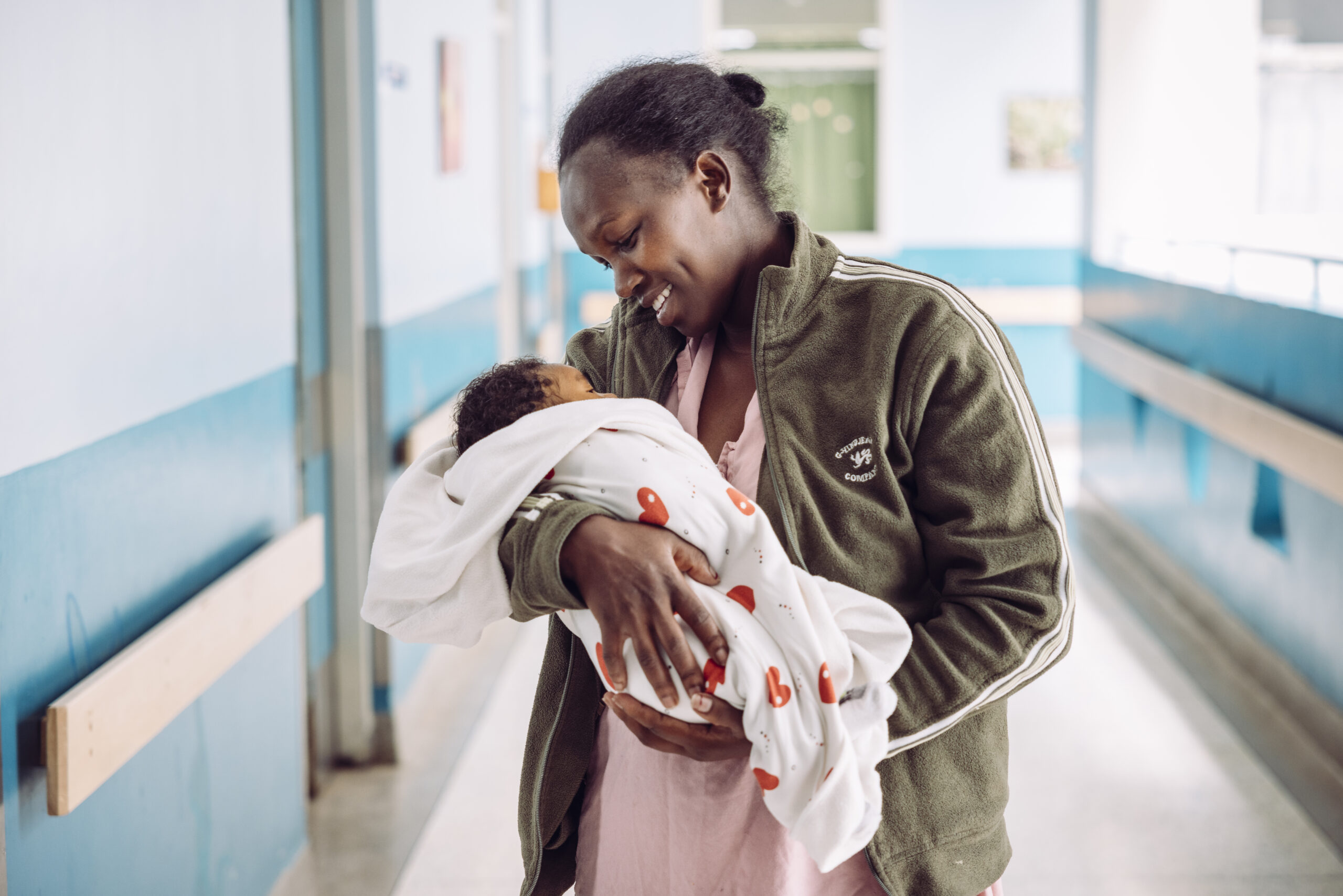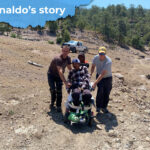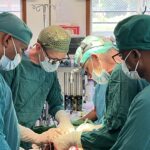Timely obstetric care is extremely important for mothers all over the world. CHSC OB/GYN Alicia Stone encountered a case of placental abruption at Bongolo Hospital, Gabon, that illuminated how responsive emergency care can save many lives.
“How do you know it’s an abruption?” Our newest doctor looks skeptical when I pronounce the diagnosis less than a minute after entering the delivery room. It’s a fair question. A placental abruption occurs when the placenta peels away from the wall of the uterus, either partially or completely, before the baby is born. As such, you might think that looking at the placenta via ultrasound would be the best way to determine this diagnosis, but unfortunately it can only be clearly seen about half the time, so the diagnosis is made based on the patients’ symptoms and physical exam.
Important clues include bleeding and pain, continuous uterine contractions, and sometimes a fall or car accident earlier in the day. If you listen to the baby’s heartbeat, you might find that it has slowed or even stopped.
The ability to make a diagnosis based on a constellation of symptoms hinges on pattern recognition – the same thing that allows a pilot to fix a problem before the plane crashes or a stockbroker to sell his stocks before the market crashes. They’ve seen it before, and they know where it’s going.
Here’s the pattern I have learned to recognize: I get a call from maternity. “Doctor, we have a case… she’s bleeding a lot.” I pray while I walk to delivery room. Before I get into the room, I can hear the cries of a woman in pain, “Ayooooo aide moi!” Help me! It’s always the same. I walk into the room and there’s blood on the bed. A lot or a little – it doesn’t matter. I feel the woman’s abdomen and her uterus is rigid. The midwife hands me the ultrasound and says “We couldn’t find the baby’s heartbeat.” Another midwife is starting IV fluids, giving antibiotics, getting the patient ready for the operating room.
We have all done this before. I tell the patient’s mother or sister or husband or friend that she is going to need blood and they have to find a blood donor. I tell them this is very important and she could die if she doesn’t get blood. They walk out of the room with a lab sheet and I hope that they will come back soon, but I know it could be hours.
I am starting to explain as much to my new colleague when I realize that something has gone off-script. I am holding the ultrasound the midwives gave me when they told me there was no fetal heartbeat, but there is one. In fact, our patient is pregnant with twins.
Realizing that the babies are alive awakens a new sense of urgency as we call in the anesthesiologist and roll the patient up the hill from maternity to the operating room. The preparations are completed quickly, another prayer is said, and my colleague and I have the first baby out moments later, quickly followed by the second.
They are small and premature, but we can already hear them crying as we finish taking out the blood-drenched placenta and start to sew up the uterus. Before the surgery is finished, a unit of blood arrives for transfusion. The next day, the patient is recovering well and the babies are stable, and the whole family is thrilled when, a week later, they are able to leave the hospital.

We are so grateful when these stories have a happy ending. In countries with easy access to hospitals, blood banks, and NICUs, if a woman has a placental abruption, she has a very high (more than 90%) chance of bringing home a healthy baby, and the likelihood of her own death is exceedingly rare.
The situation is much different in a region like ours, where a woman may travel hours to get to a hospital, we have no ventilators for premature babies, and we rely on family or community members for blood. The baby may run out of oxygen, the woman may lose too much blood, or the uterus may be injured beyond repair before the patient even arrives at our hospital.
Although the reason is unclear, Black women also tend to have a higher risk of placental abruption than white women in the same community, and the risk in Africa appears to be even higher: up to 1 in 17 pregnancies according to a study in Senegal, as compared to 1 in 100 pregnancies in the USA. Timely access to quality obstetric care can make a huge difference in the lives of these mothers and babies.






